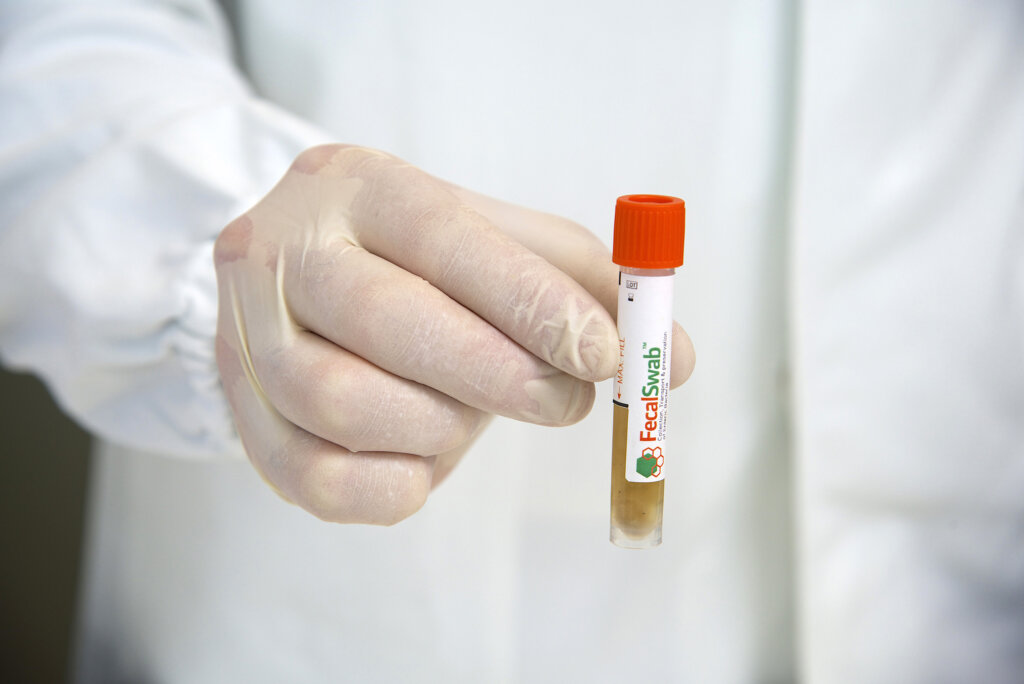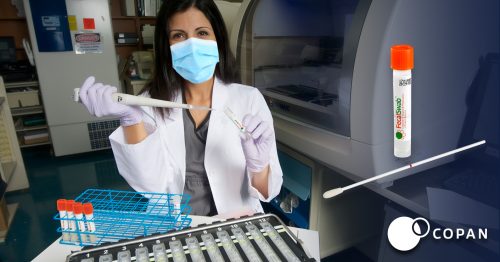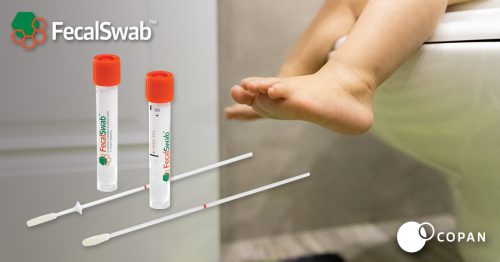Comprehensive Guide to Cary-Blair Transport Medium: The Gold Standard for Fecal Sample Collection and Transport
August 23, 2024
Key Insights:
- Cary-Blair Medium Overview: The critical role of Cary-Blair Transport Medium in preserving fecal samples for diagnostic testing.
- Composition and Application: Details the specific components of Cary-Blair medium and their functions, highlighting its effectiveness in preserving a wide range of enteric pathogens during transport from collection sites to laboratories.
- Usage Guidelines and Innovations: Provides practical guidelines for using the medium effectively with Copan’s FecalSwab® kit, which integrates advanced flocked swab technology to improve the recovery and diagnostic accuracy of enteric pathogens.
Estimated Reading Time: 8-10 minutes
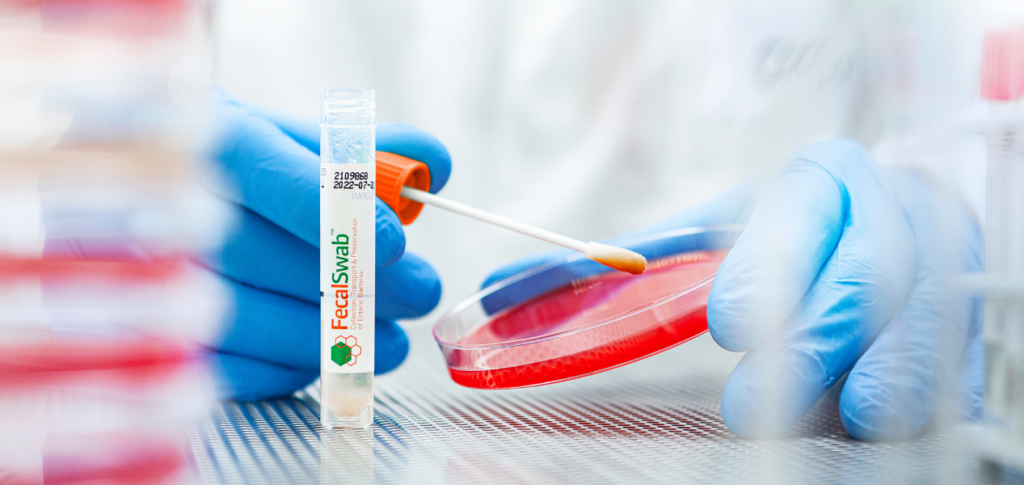
Introduction
Proper fecal specimen collection and transport are crucial for accurate diagnostic testing and effective treatment of gastrointestinal illnesses. Cary-Blair medium has emerged as a widely-used solution for preserving the viability of enteric pathogens during the transport of fecal samples from the collection site to the testing laboratory.
This article will delve into the importance of Cary-Blair medium in fecal sampling, its applications, how to effectively use it for optimal results, and a new type of Cary-Blair sample collection and transport system on the market.
The Importance of Fecal Sampling
Cary-Blair Transport Medium is a specialized microbiological transport medium widely recognized for its efficacy in preserving clinical specimens containing enteric pathogens (those relating to or occurring in the intestines). This medium is critical in ensuring that samples such as stool, rectal swabs, and other bodily fluids remain viable from the point of collection to laboratory analysis, crucial for accurate diagnostic results.
Stool samples can provide valuable insights into the presence of enteric pathogens, such as bacteria, viruses, and parasites, which can cause a wide range of symptoms, from mild discomfort to severe illness. Accurate fecal sample collection and transport are essential for maintaining the integrity of the sample and ensuring reliable diagnostic results.
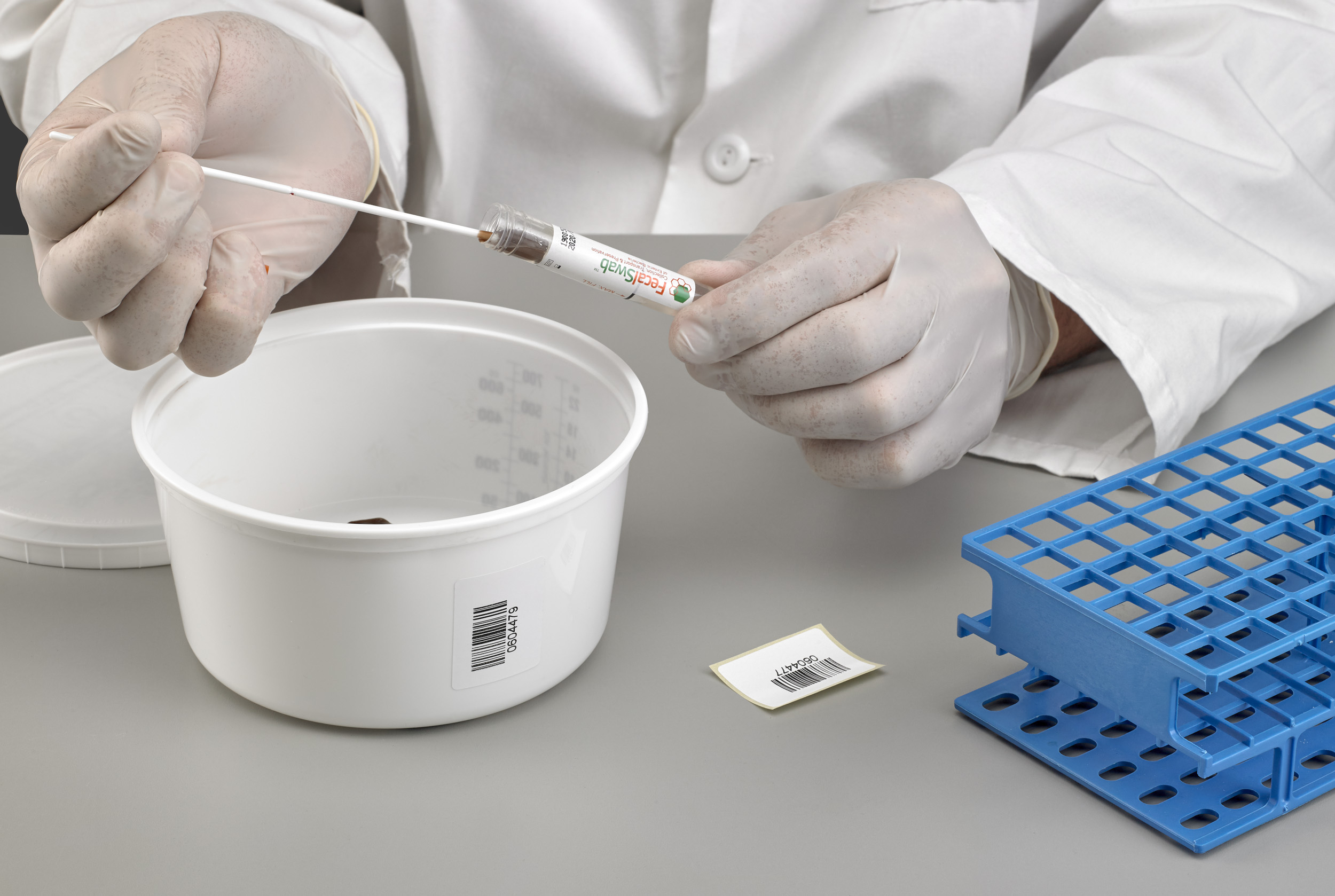
Historical Evolution and Enhancements
Developed from modifications to the earlier Stuart’s Transport Medium, Cary-Blair Transport Medium was significantly improved by Drs. Cary and Blair in the 1960s. Their enhancements were aimed at stabilizing pH and reducing microbial overgrowth, making it an ideal choice for the transportation of delicate bacterial cultures.
These advancements have established Cary-Blair as the preferred medium in epidemiological studies and routine pathogen monitoring.
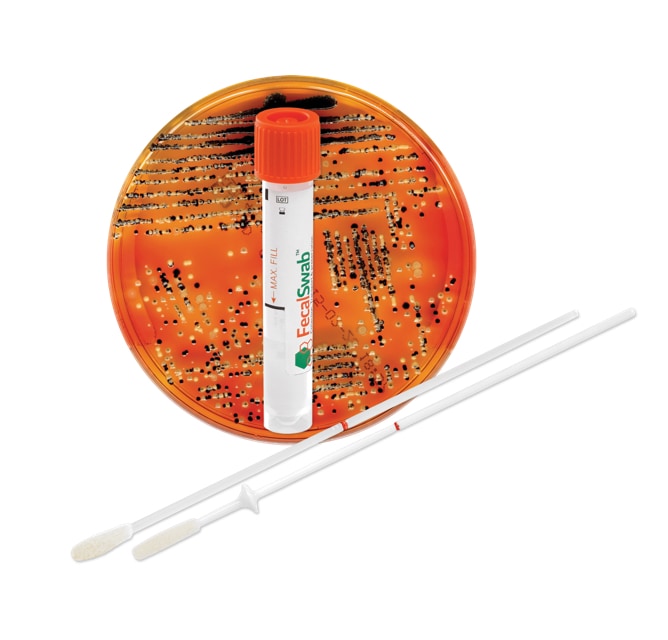
Detailed Composition and Functional Mechanism
The medium contains a balanced mixture of salts, minerals, and a low nutrient content to prevent the overgrowth of commensal organisms while preserving the target pathogens. Cary-Blair media also includes a reducing agent and phosphate buffer to maintain a neutral pH, further promoting the survival of enteric bacteria
The effectiveness of Cary-Blair Transport Medium is attributed to its carefully formulated components, each serving a specific function:
- Disodium hydrogen phosphate and sodium chloride: These salts manage the medium’s pH and osmotic balance, creating a stable environment for bacteria.
- Sodium thioglycolate: This component reduces the oxidation-reduction potential, fostering an anaerobic environment that inhibits unwanted microbial growth.
- Calcium chloride: Helps in maintaining the integrity of bacterial cell walls under stress.
- Agar: The inclusion of agar ensures the medium remains semi-solid, which reduces the risk of mechanical damage to the specimens during transport.
Reagents in Copan FecalSwab ® Collection, Transport and Preservation Modified Cary-Blair Medium:
- Chloride salts and Sodium salts: Work to stabilize the ionic balance and pH, crucial for maintaining cell integrity during transit.
- Phosphate buffer: Maintains the pH at a consistent level, which is vital for pathogen preservation.
- L-Cysteine: Acts as a reducing agent to maintain a reduced environment conducive to the survival of anaerobic and facultative bacteria.
- Agar: Provides a semi-solid matrix that cushions the cells and reduces the risk of mechanical damage.
- Distilled water: Serves as the solvent, ensuring that the reagents are evenly distributed and the medium has the correct consistency.
How to Use Cary-Blair Medium for Fecal Sample Collection
Proper sample collection techniques are essential for optimal results when using Cary-Blair medium. The resources steps outline the recommended procedure for fecal sampling using Copan FecalSwab®.
It is crucial to follow the manufacturer’s instructions and guidelines provided with the specific fecal sample collection kit to ensure accurate results and prevent contamination.
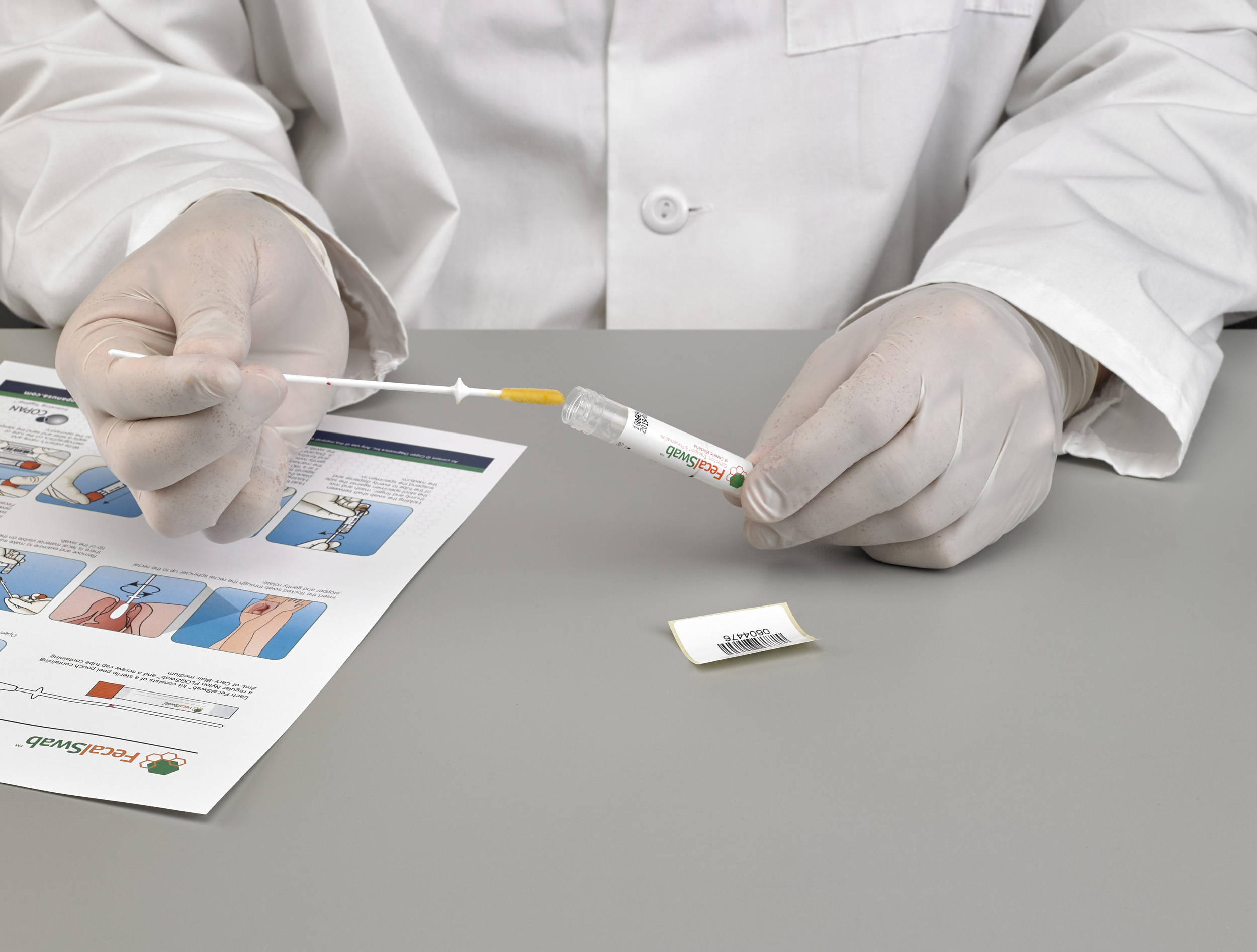
Other Frequently Asked Questions about Cary-Blair Medium:
While we’ve covered the basics of Cary-Blair medium, its composition, and its applications, you may still have some questions about its practical use in clinical settings. To address common concerns and provide further clarity, we’ve compiled a list of frequently asked questions about Cary-Blair medium.
How long can fecal samples be stored in Cary-Blair medium before testing?
Ideally, samples should be transported to the laboratory within 2 hours of collection. If delays are anticipated, samples can be refrigerated at 2-8°C for up to 48 hours*.
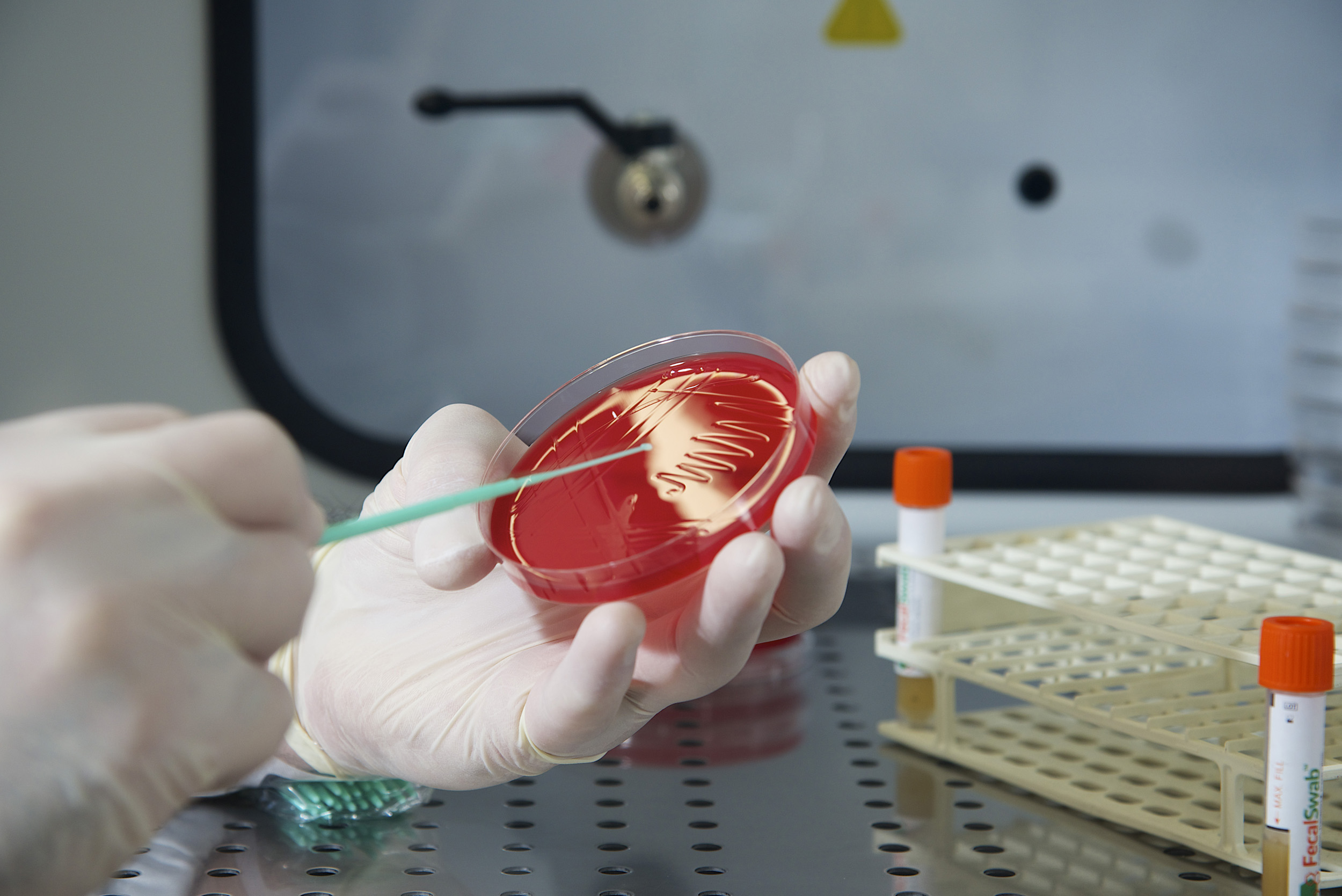
Can Cary-Blair medium be used for the detection of parasites or viruses?
While Cary-Blair medium is primarily designed for the preservation of enteric bacteria, it may be suitable for enteric molecular assays for bacteria, viruses and parasites where assay documentation indicates Cary-Blair media.*
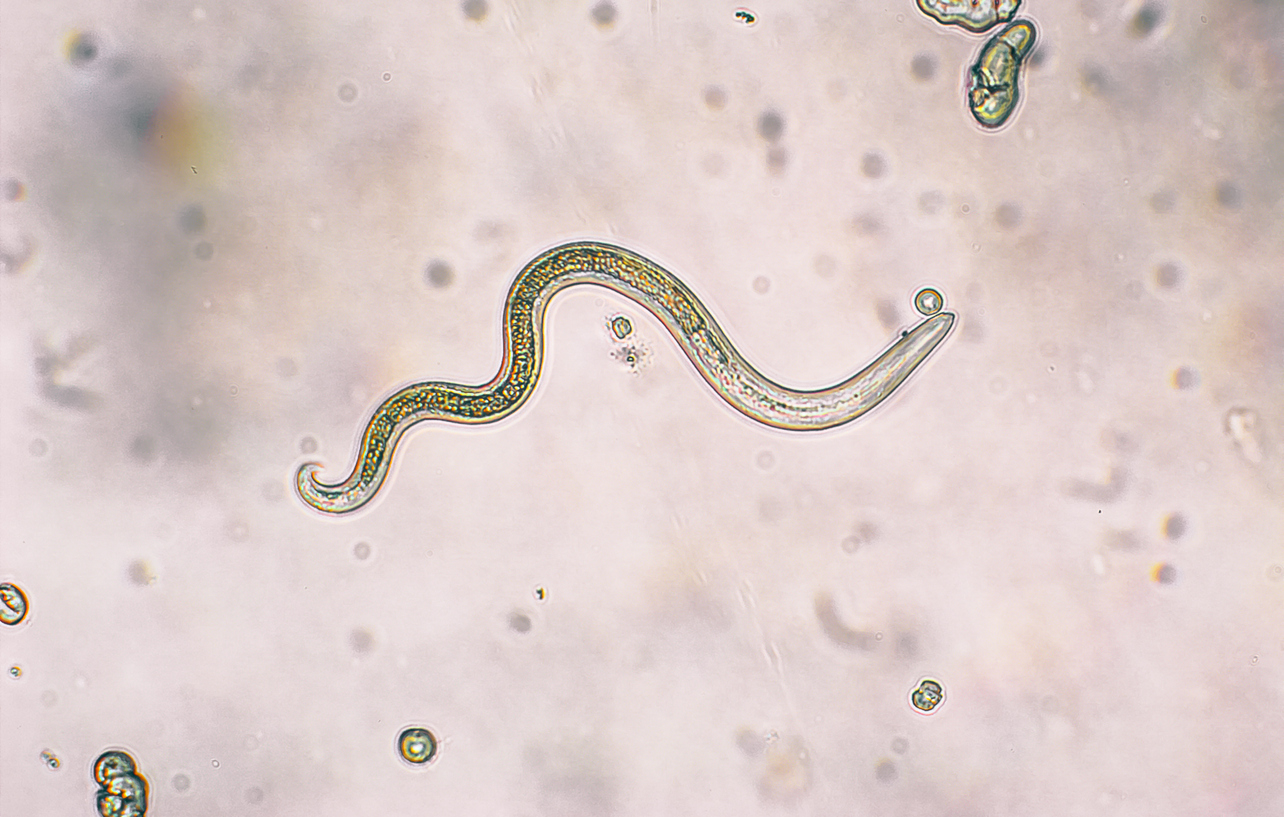
Is Cary-Blair medium compatible with molecular testing methods?
Cary-Blair medium is compatible with many various molecular assays, including PCR-based tests, as it preserves the integrity of nucleic acids*.
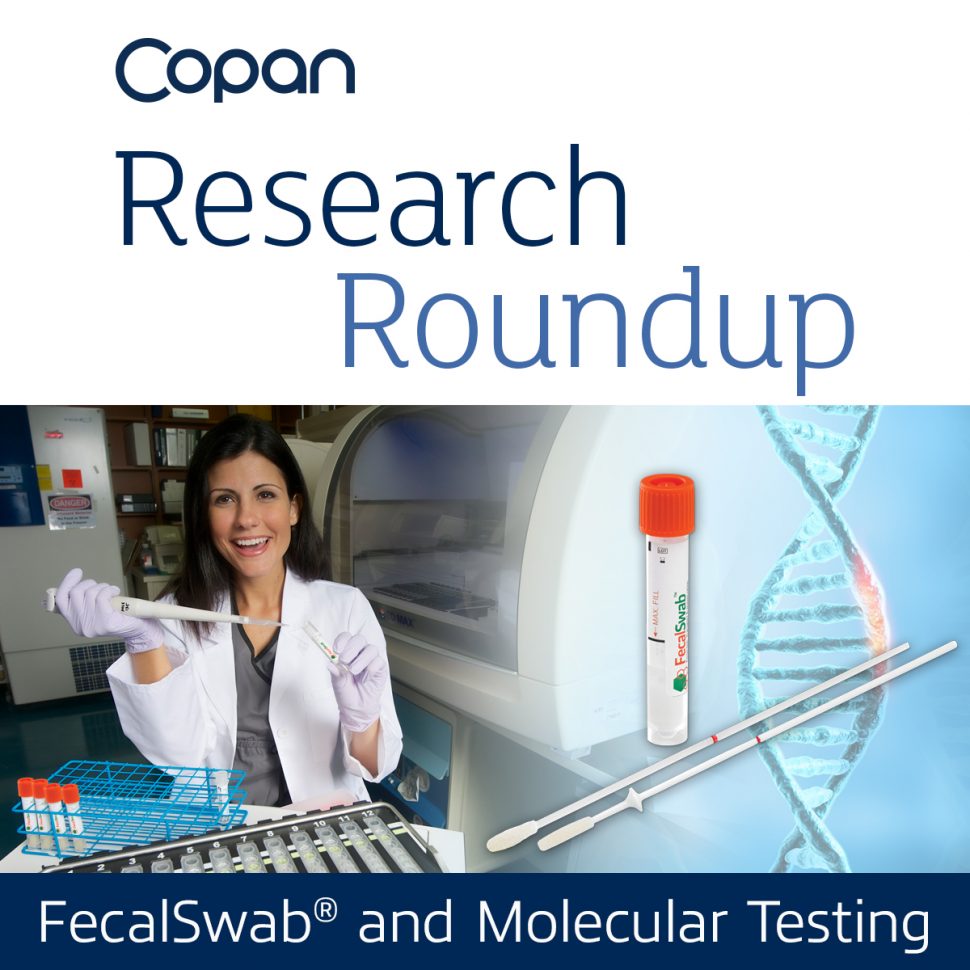
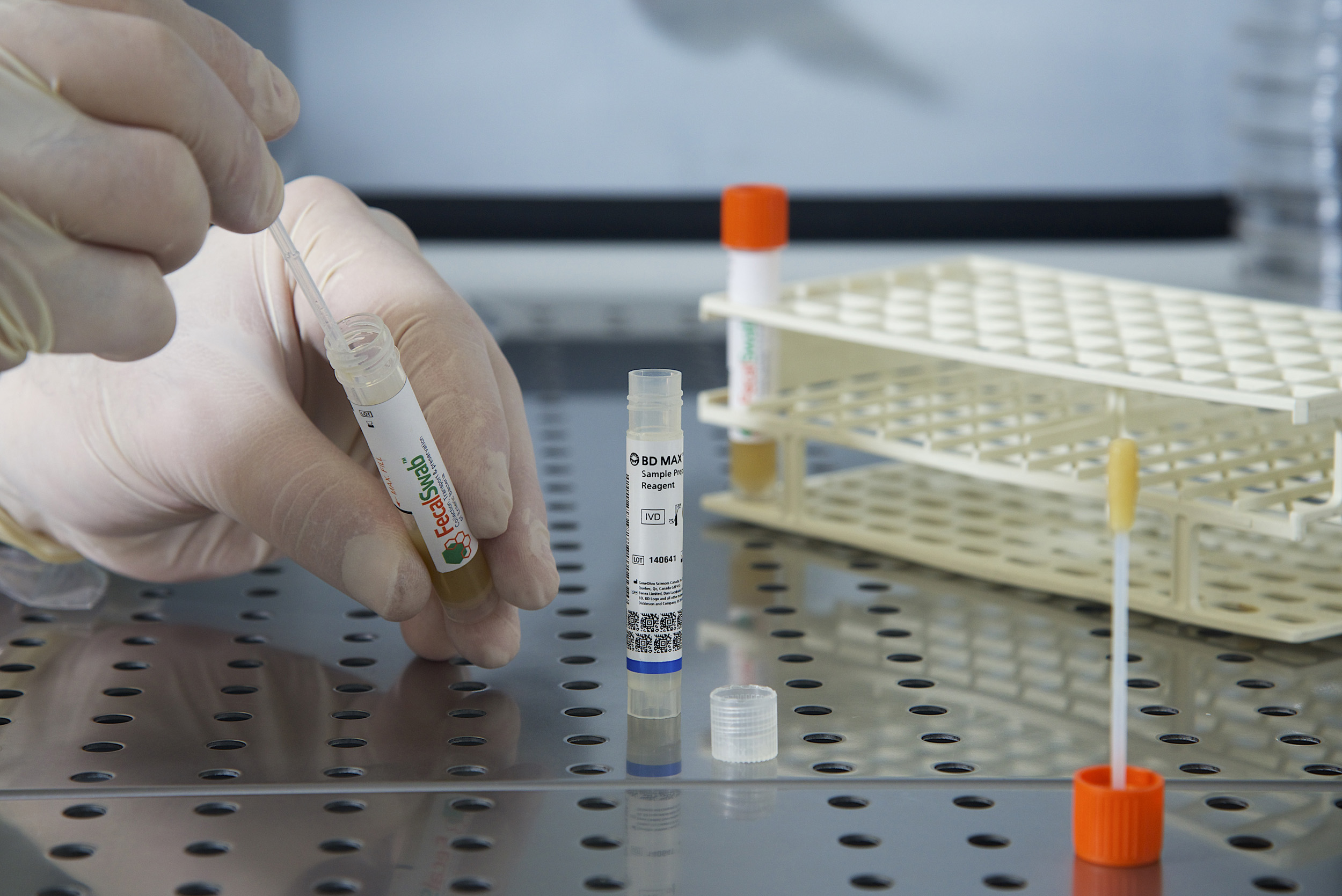
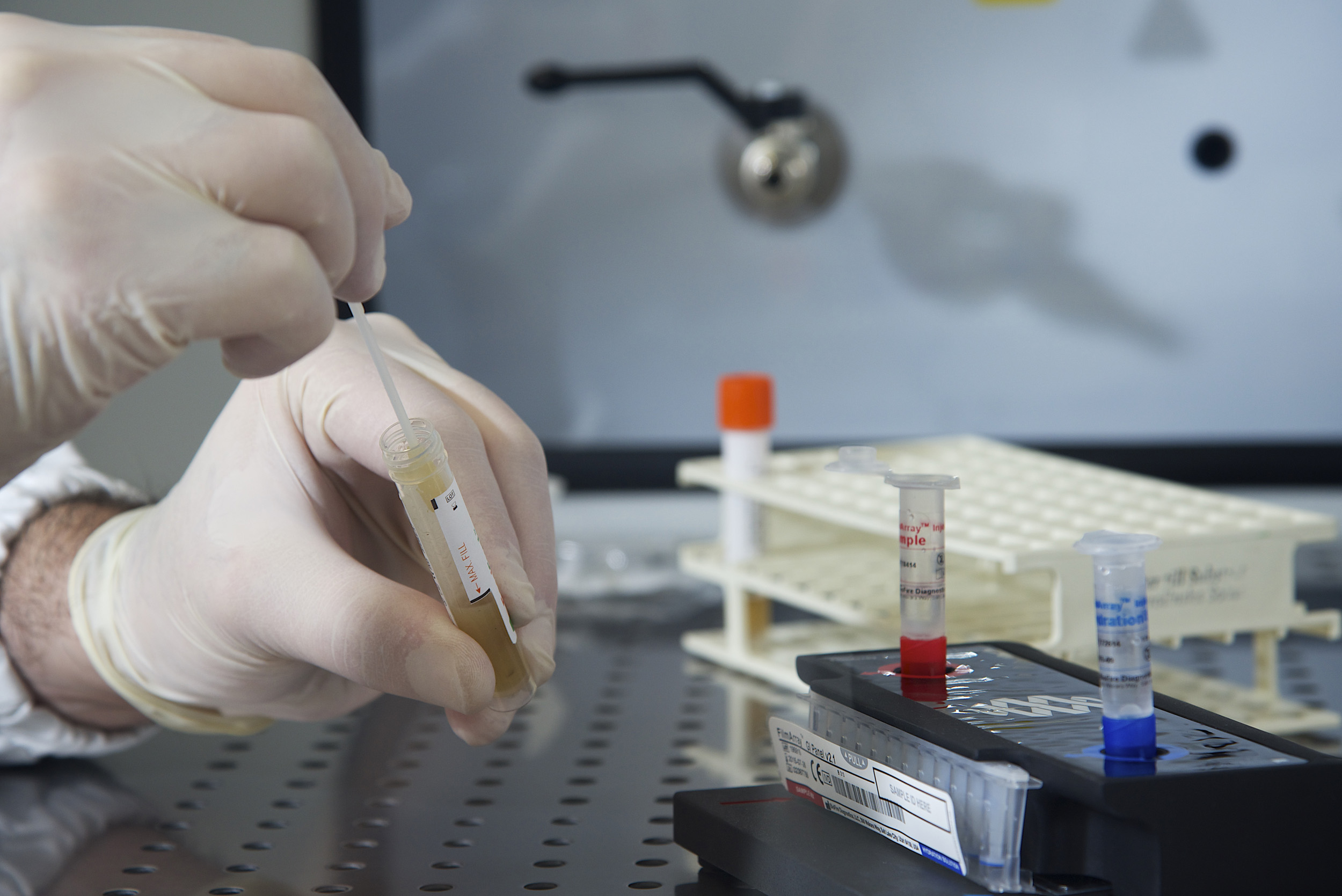
Can Cary-Blair medium be used for the collection of environmental samples?
While Cary-Blair medium is primarily intended for clinical fecal sampling, it may be used for the collection and transport of environmental samples where Cary Blair Media is Specified, such as food or water, for the detection of enteric pathogens. However, it is essential to follow the appropriate sampling protocols and guidelines for environmental testing*.
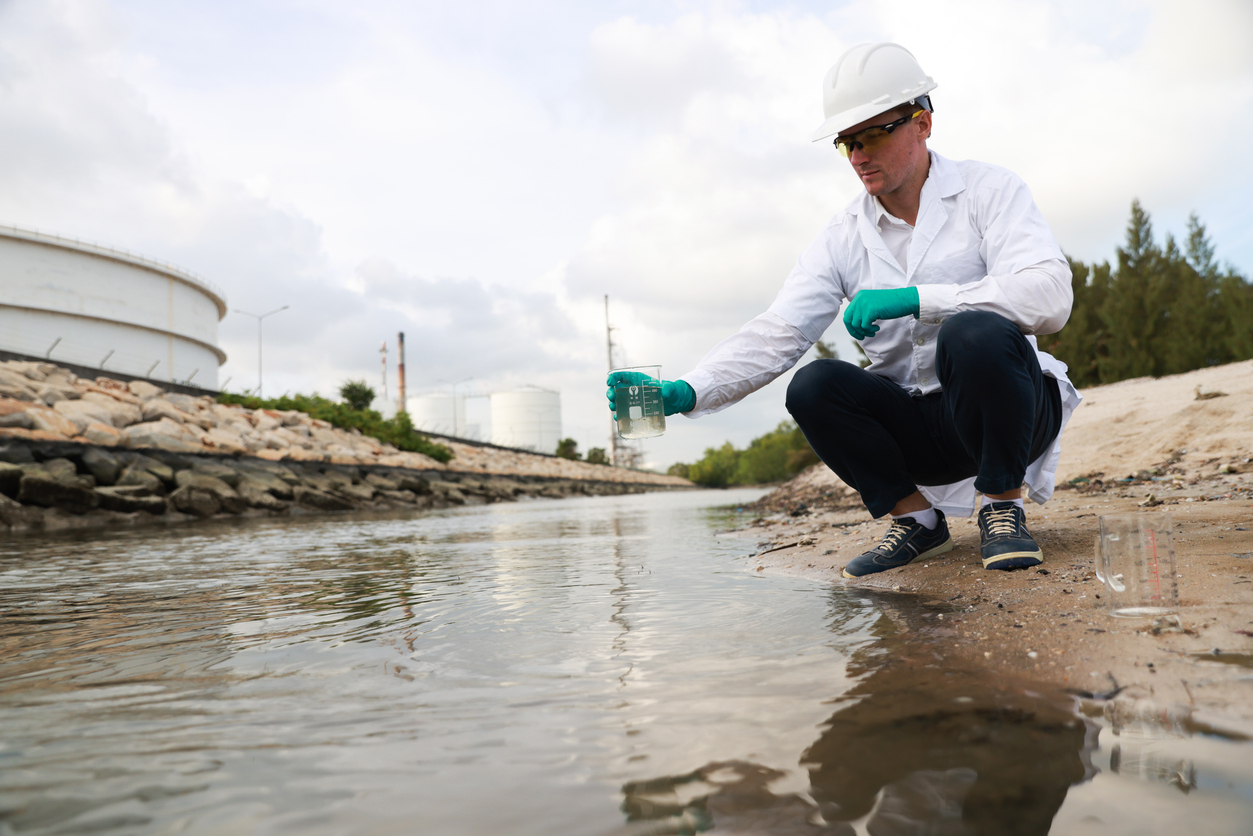
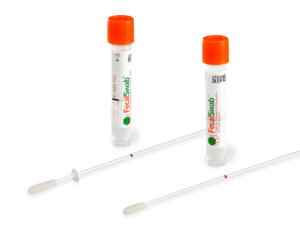
Copan’s FecalSwab®: An Innovative Stool Sample Kit
Copan’s FecalSwab® is a cutting-edge stool sample collection kit that incorporates Cary-Blair medium for optimal preservation of enteric pathogens. The kit features a unique FLOQSwab® flocked swab that enhances the absorption and release of the sample, improving the recovery of microorganisms.
The user friendly design of the FecalSwab® system simplifies the collection process and minimizes the risk of contamination. The kit’s compact size and leak-proof container make it ideal for transport, ensuring the sample remains stable until it reaches the laboratory.
One of the key advantages of FecalSwab® is its compatibility with a wide range of diagnostic methods, including traditional culture, molecular assays, and rapid antigen tests where assay documentation indicates Cary-Blair media*. This versatility makes FecalSwab® an essential tool for healthcare providers, enabling them to choose the most appropriate testing method based on the patient’s needs and the laboratory’s capabilities.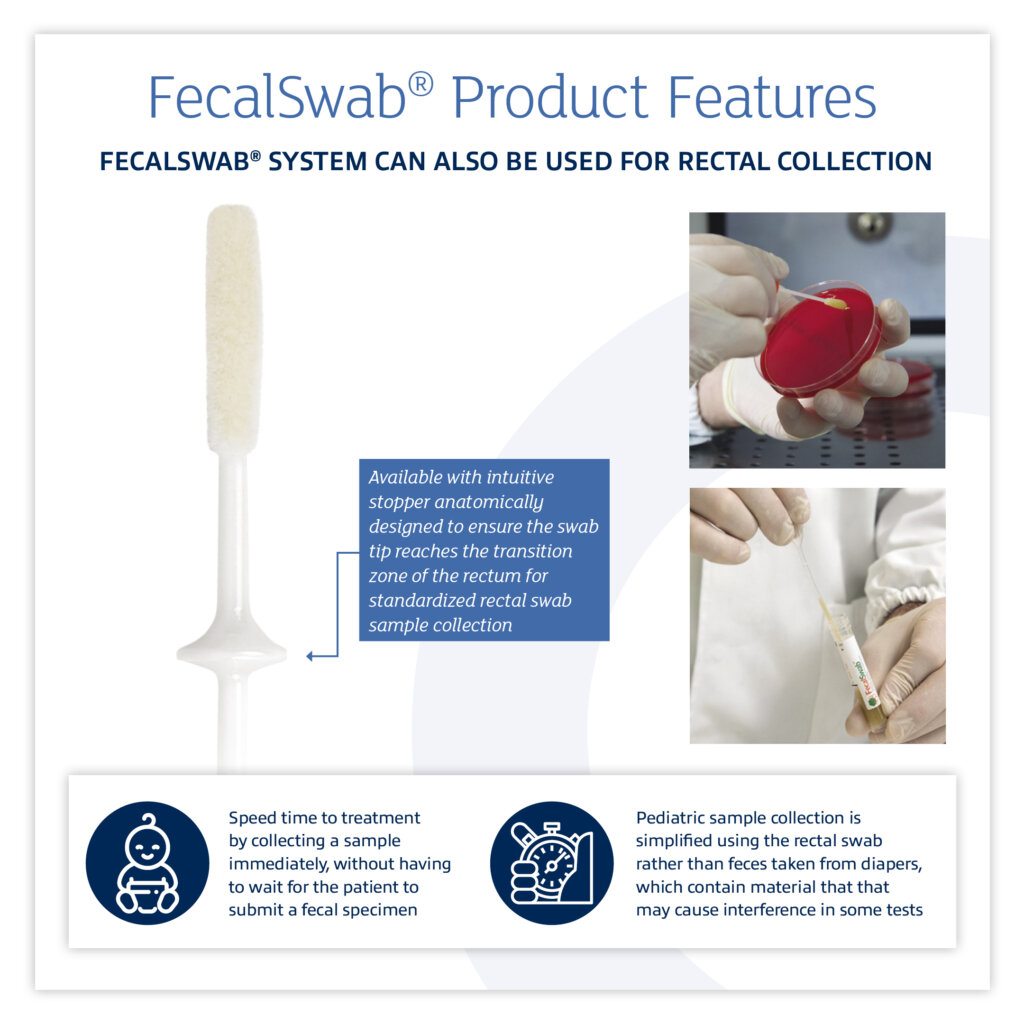
FecalSwab® also offers a solution for rectal sample collection, featuring a swab with a stopper that ensures the correct insertion depth. This design helps minimize patient discomfort and standardizes the collection process, ensuring consistent and reliable results.
Visit Copan’s website or contact our customer service to learn more about how this innovative product can be integrated into your specimen collection and transport protocols.
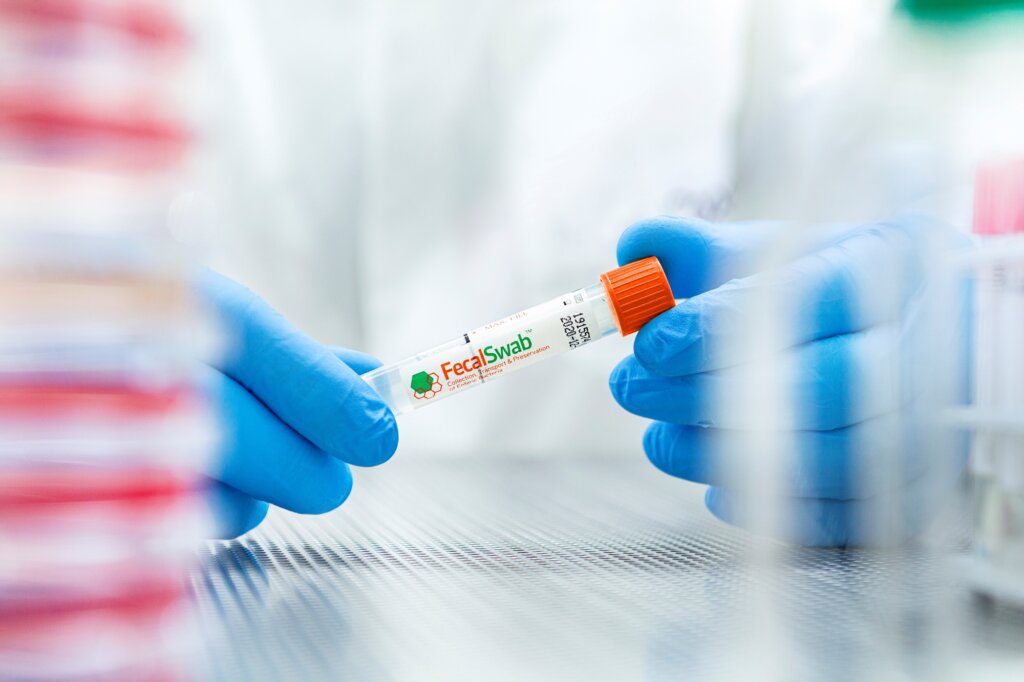 Conclusion
Conclusion
Cary-Blair medium has become the gold standard for fecal sample collection and transport due to its ability to maintain the viability of enteric pathogens. By using Cary-Blair medium and following proper collection techniques, healthcare providers can have more accurate diagnostic results and facilitate effective treatment for gastrointestinal illnesses.
Copan’s FecalSwab® kit, which incorporates Cary-Blair medium, offers a convenient and reliable solution for fecal sampling needs, including both stool specimen collection and rectal sampling. For optimal results and improved patient care, healthcare professionals are encouraged to adopt FecalSwab® in their clinical practice.
As the importance of accurate fecal specimen collection and transport continues to grow in the face of emerging gastrointestinal diseases and public health challenges, Cary-Blair medium and innovative products like Copan’s FecalSwab® will remain essential tools in the fight against these illnesses. By staying informed about the latest advancements in fecal sampling and embracing best practices, healthcare providers can contribute to better patient outcomes and enhance public health preparedness.
References:
1. CLSI M40-A2 guidelines on quality control of microbiological transport systems (Clinical and Laboratory Standards Institute. (2014). M40-A2: Quality control of microbiological transport systems; Approved standard – second edition.)
2. Wasfy, M. O., Oyofo, B. A., Elgindy, A. A., & Churilla, A. M. (1995). Comparison of preservation media for storage of stool samples. Journal of Clinical Microbiology, 33(8), 2176-2178.
3. Centers for Disease Control and Prevention. (2019). Stool specimens – Shipping guidelines. CDC.gov. https://www.cdc.gov/laboratory/specimen-submission/shipping-packing.html
*Always read the manufacturer’s package insert for specific instructions regarding specimen collection and transport for the type of test kit being used.
About Copan Diagnostics
Copan is the leading innovator in sample collection, transport, and preservation systems. For over 40 years we have collaborated with laboratories to create breakthrough technologies advancing traditional and contemporary assays.
Explore our complete range of products powering clinical, industrial, forensics, genetics, and research workflows.


